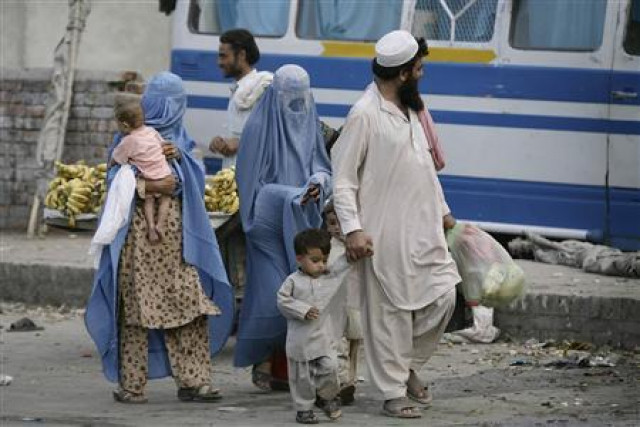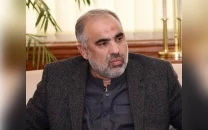1.4m Afghan refugees issued biometric cards
PoR will enable refugees to access critical services

Pakistan has updated details of more than 500,000 registered Afghan refugees as part of a countrywide campaign to issue renewed Proof of Registration (PoR) cards.
The 1.4 million already registered Afghan refugees are being re-verified and issued new biometric cards through 35 sites and four mobile units. The last large-scale verification of refugees in the country was undertaken ten years ago.
Known as the Documentation Renewal and Information Verification Exercise (DRIVE), the government-led campaign is run by the National Database and Registration Authority (NADRA) and Commissionerate for Afghan Refugees (CAR), with the support of the UN Refugee Agency (UNHCR), and is expected to be completed within a year.
Read Why do young Afghan refugees in Pakistan lack education, skills?
DRIVE will boost Pakistan’s efforts to enhance protection and assistance for refugees. The cards will better-enable refugees to access critical services, such as health and education. Refugees who completed their DRIVE verification interviews receive SMS notifications advising them of when and where their new PoR smartcards can be collected.
“I applaud the progress Pakistan has made with this exercise. It is a global leader in terms of developing a hightech refugee registration platform which enables refugee protection and solutions. I hope more countries will follow in Pakistan’s footsteps in providing documentation to refugees,” said the UNHCR Regional Director for Asia and the Pacific Indrika Ratwatte while visiting a DRIVE Centre in Peshawar on Tuesday.
NADRA has printed and distributed some 100,000 new smartcards to existing registered Afghan refugees. “A lot has changed since the last large-scale exercise in Pakistan 10 years ago. The refugee smartcards are an important tool of protection, and it enables the government and UNHCR to have current information on the refugee population, including vulnerabilities, skills and education levels to better inform the provision of services and assistance,” Ratwatte added.
Read US to begin new Afghan refugee program
The smart PoR cards, which will be valid until June 2023, are legally recognised proof of identity and include enhanced security features. These cards will also be technologically compatible with systems used in Pakistan to authenticate the identities of nationals to access services. DRIVE is also part of a wider effort to seek solutions for Afghan refugees, particularly through the Support Platform for the Solutions Strategy for Afghan Refugees (SSAR).
The exercise will help collect data on the educational and professional backgrounds of refugees. This information will also assist in the development of undertaking training and enhance education opportunities for refugees, as well as match the needs for specific skill sets with opportunities in Afghanistan, which may enable voluntary return and sustainable reintegration in the future.
Measures are in place at all DRIVE sites to mitigate Covid-19 risks through enhanced hygiene, physical distancing, and the scheduling of set numbers of appointments each day.


















COMMENTS
Comments are moderated and generally will be posted if they are on-topic and not abusive.
For more information, please see our Comments FAQ